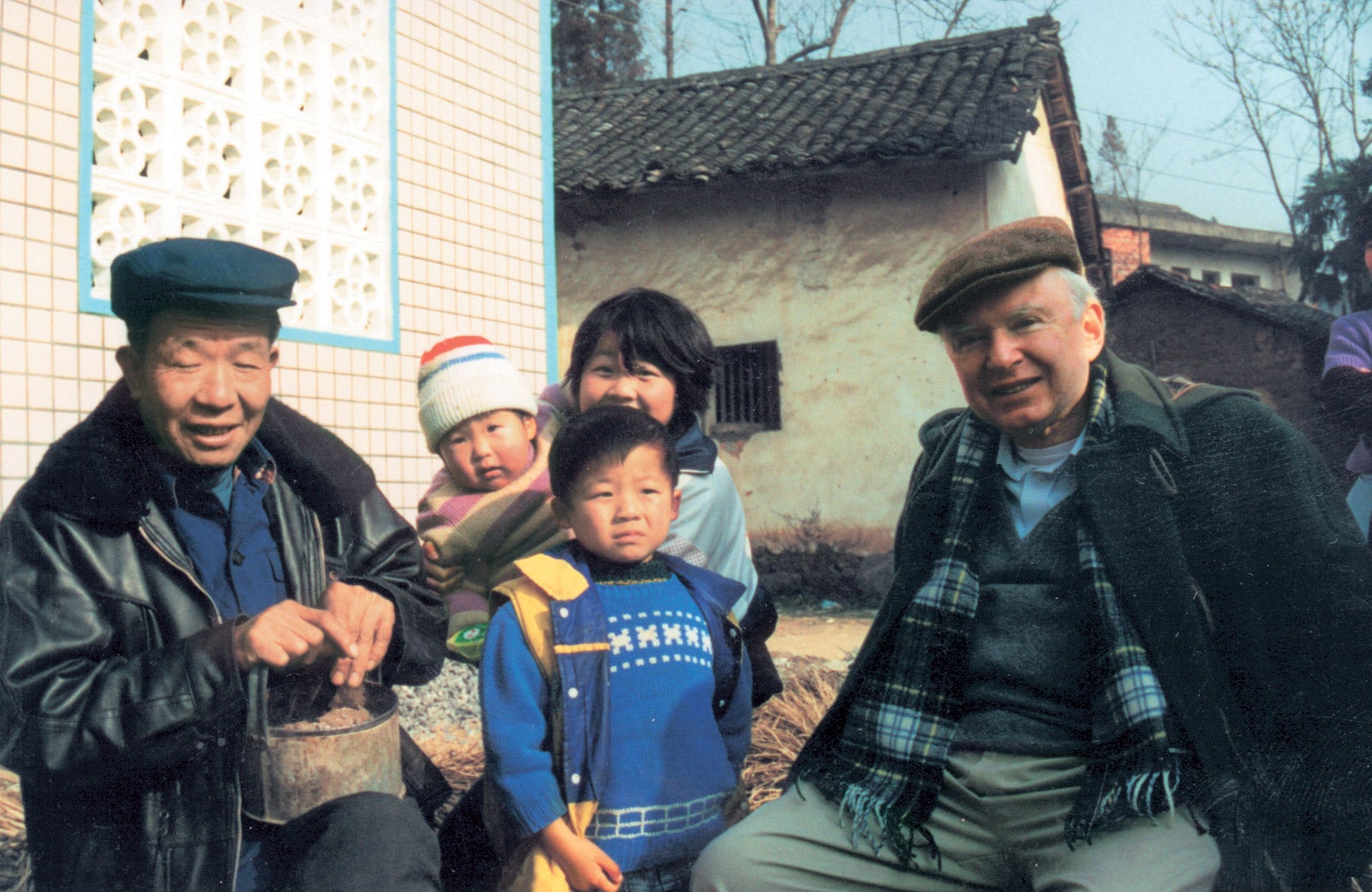Roy Prosterman ’58 wants people in the poorest countries to own property. Think of it, he says, as an insurance policy for the planet.
Since 1970, when his fieldwork in Vietnam inspired legislation that gained a million tenant-farmer families land ownership, Prosterman has helped bring land reform to 37 developing countries throughout the world. In 1981, the University of Washington law professor founded the nonprofit Rural Development Institute to further the work.
Prosterman has long been convinced of the link between landlessness and violence. A solution, he believes, is to encourage developing countries to deal with some of the grievances that give rise to such violence–in some cases by buying property at a fair price and giving it to the poor.
The institute has also helped countries strengthen farmers’ existing land rights. In China, for example, even after decollectivization in the 1980s, farmers didn’t have long-term land rights, which deterred them from making investments in their land. Since 1988, the institute has interviewed hundreds of farm families in more than 20 provinces and consulted with Chinese policy-makers, resulting in legislation that provides for 30-year land-use rights backed by contracts with farm households. According to the organization, 85 million of China’s 210 million agricultural households now have secure 30-year land-use rights.
Prosterman says the shape of land reform has changed since he began working in Vietnam, when he believed that the landless needed at least a few acres. Today, he says, landless families in places like India and Bangladesh can benefit from ownership of a plot as small as one-tenth of an acre, enough for a house and garden. This more feasible approach still enables poor families to provide themselves with a supplemental source of food and income, access to credit, and improved status in the community, he says.
In the aftermath of 9/11, Prosterman says we need to be concerned with the new connections between rural poverty and violence in the form of terrorism. During the Cold War, the rural landless were often mobilized by revolutionary Marxism, he says. Now, it’s often radical Islam. “Landlessness still has very important links to violence,” he said. “And if we are not concerned about it as a society from a humanitarian or an economic development point of view, we should at least be concerned about it from a global stability and security point of view.”
Prosterman’s work has provoked criticism from the left and the right, but the results, he says, bridge an ideological divide: “When people understand the issue and see that a reasonable effort can be made to do it in a nonconfrontational, nonviolent, nonconfiscatory manner, the support can be quite widespread.”
Twice nominated for the Nobel Peace Prize, Prosterman can now point to more than 120 million farm families worldwide who have ownership rights thanks to the institute. And he hopes that the new concept of the house-and-garden plot will make it possible for many more to become landowners.
There is much more work to be done, he says. According to Prosterman, the United States now earmarks no foreign aid specifically for land acquisition and redistribution and spends less than one-tenth of 1 percent of its gross national product on foreign aid. If developed countries doubled the amount of their foreign aid and targeted it on rural land reform, education, health care, and small-scale credit, we could virtually eliminate poverty by the year 2015, he says.
“If we don’t deal with the problems of poverty over the course of the next two generations–with the linkage between [poverty] and violence and the ever-increasing availability of technologies of mass destruction–I think it creates a hellacious set of problems that could undermine our whole civilization,” Prosterman said.
